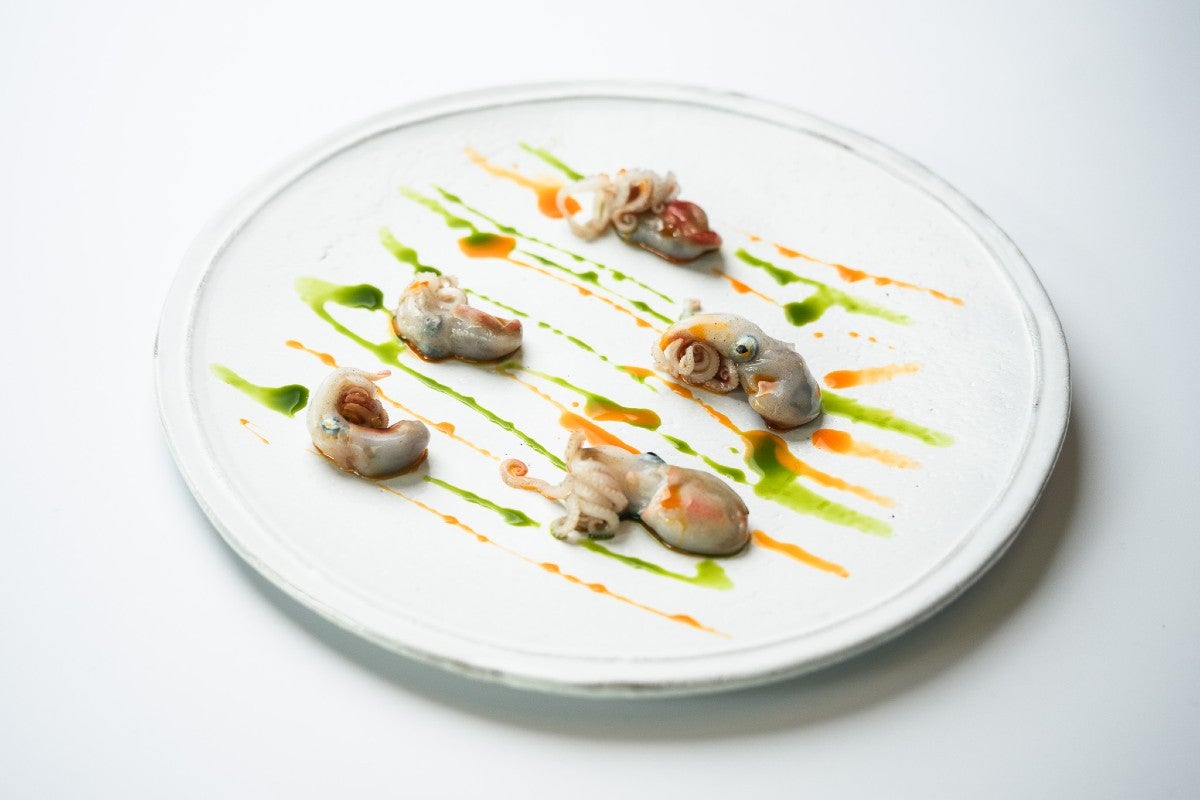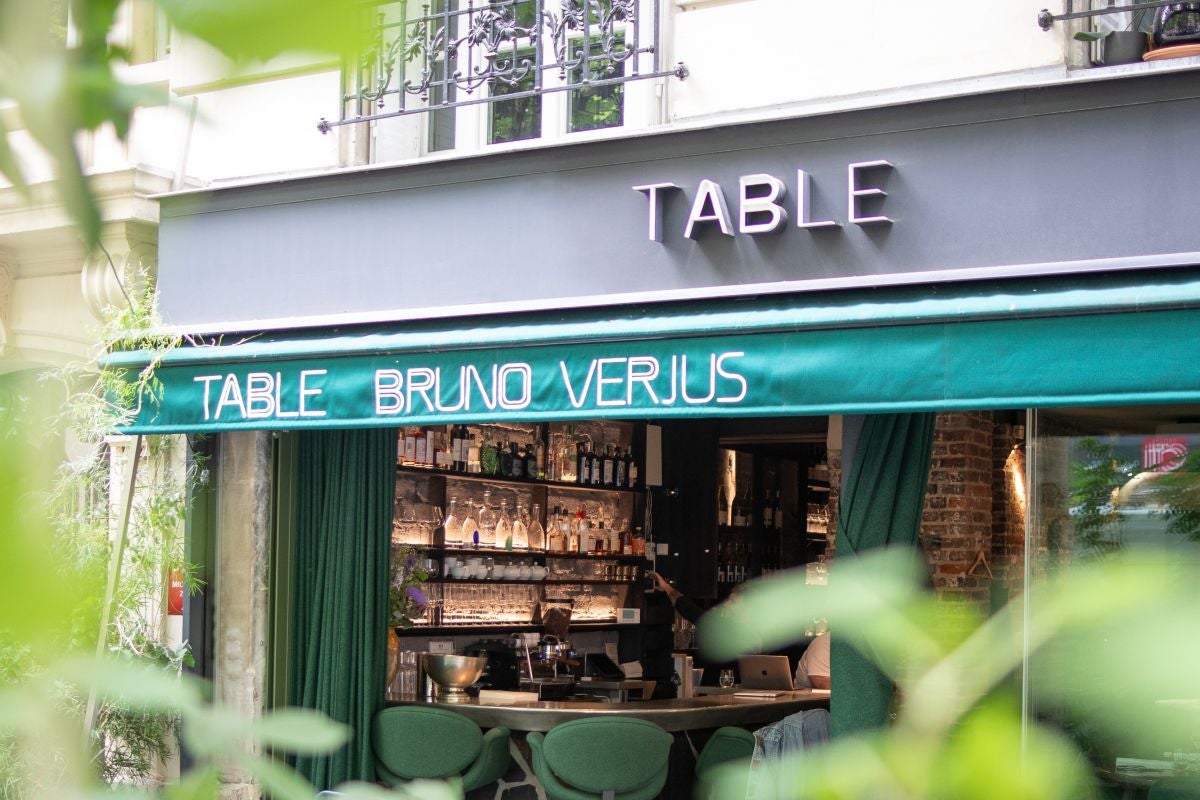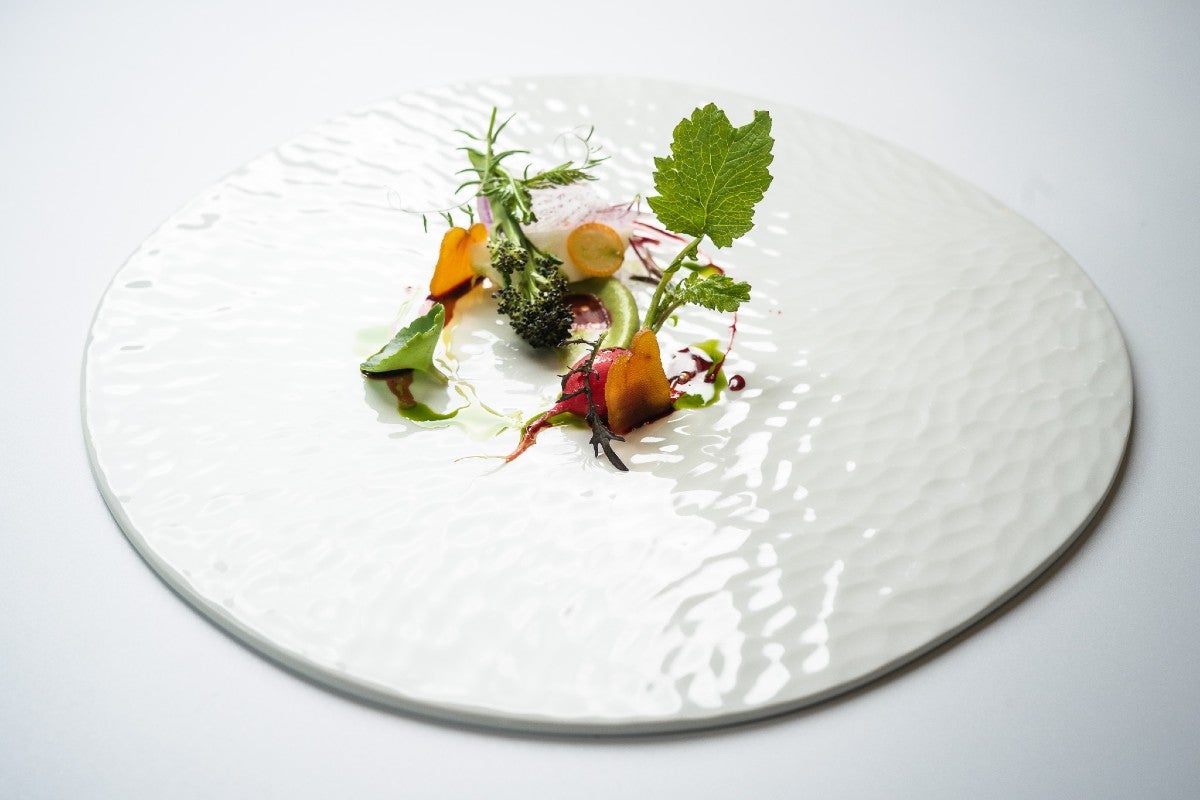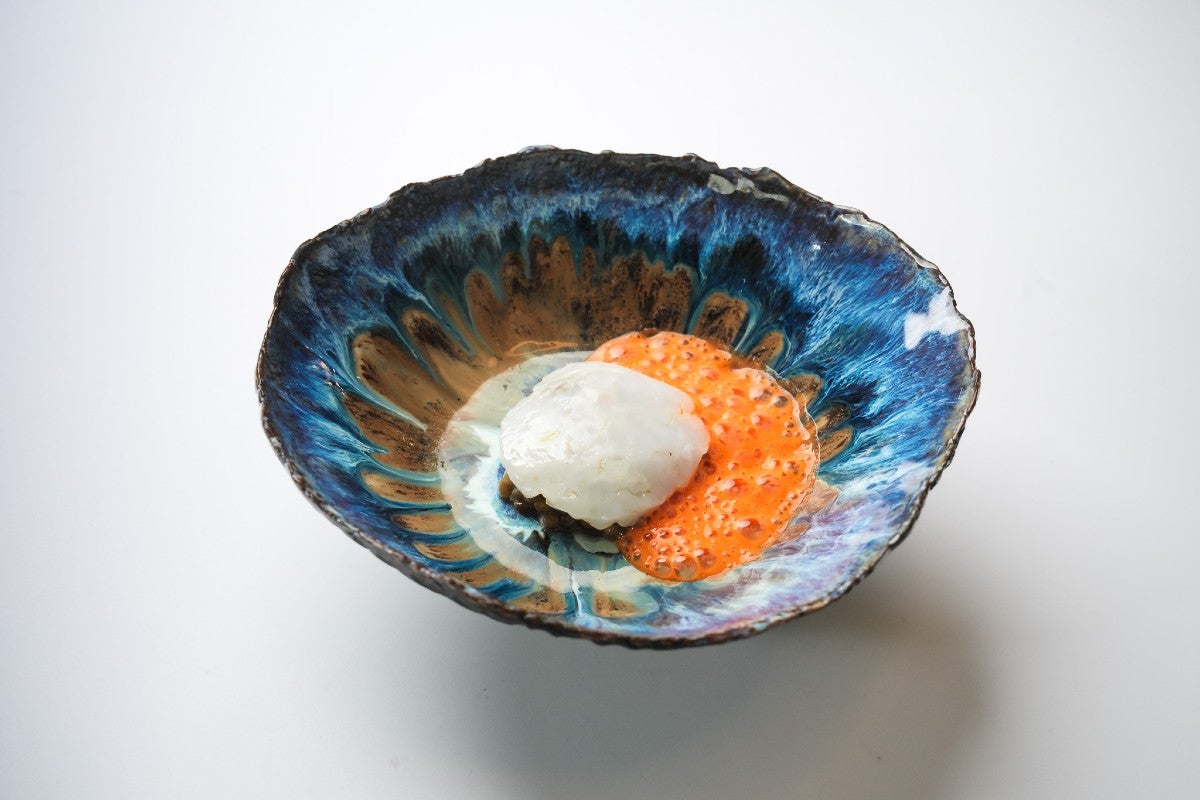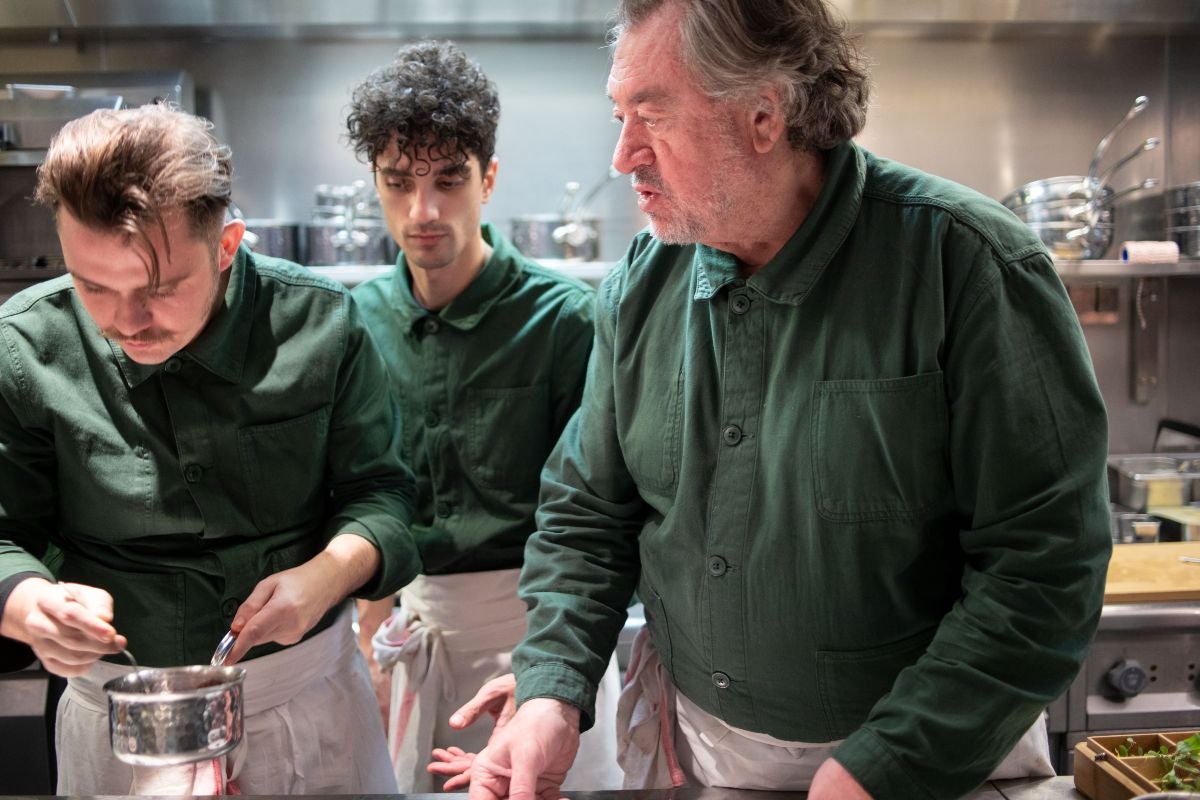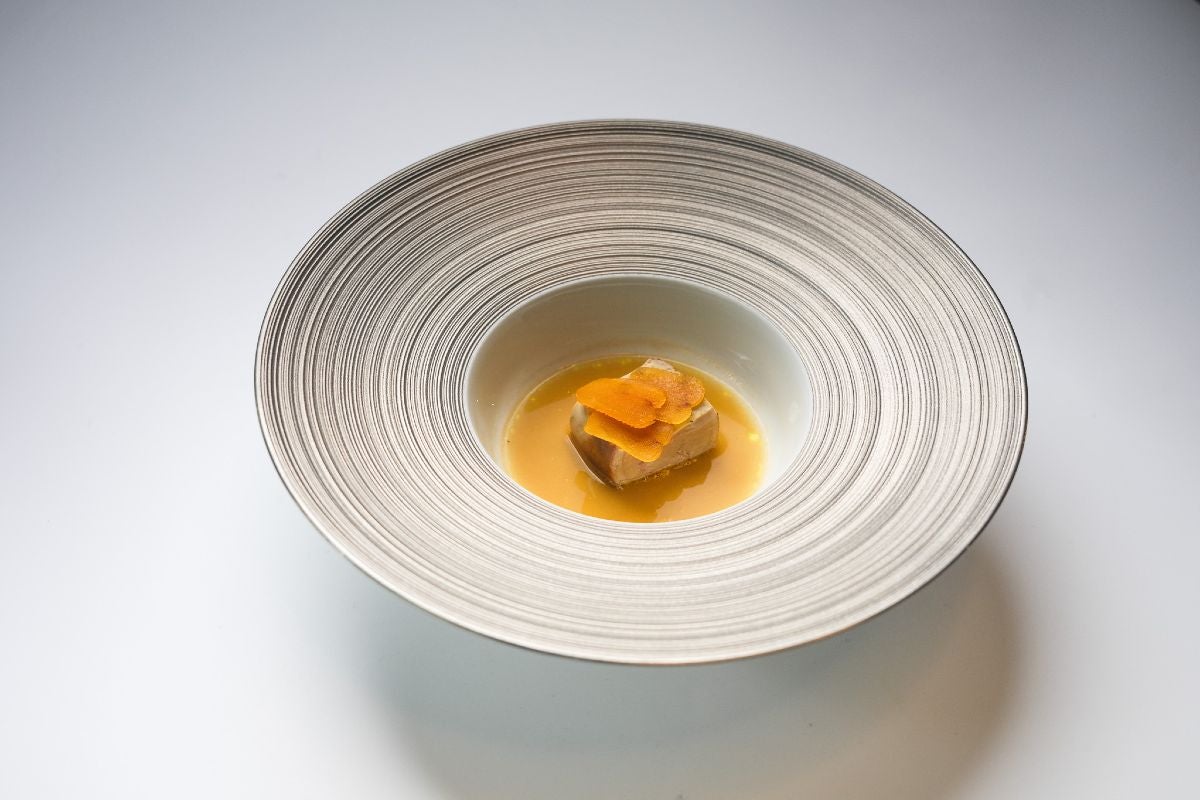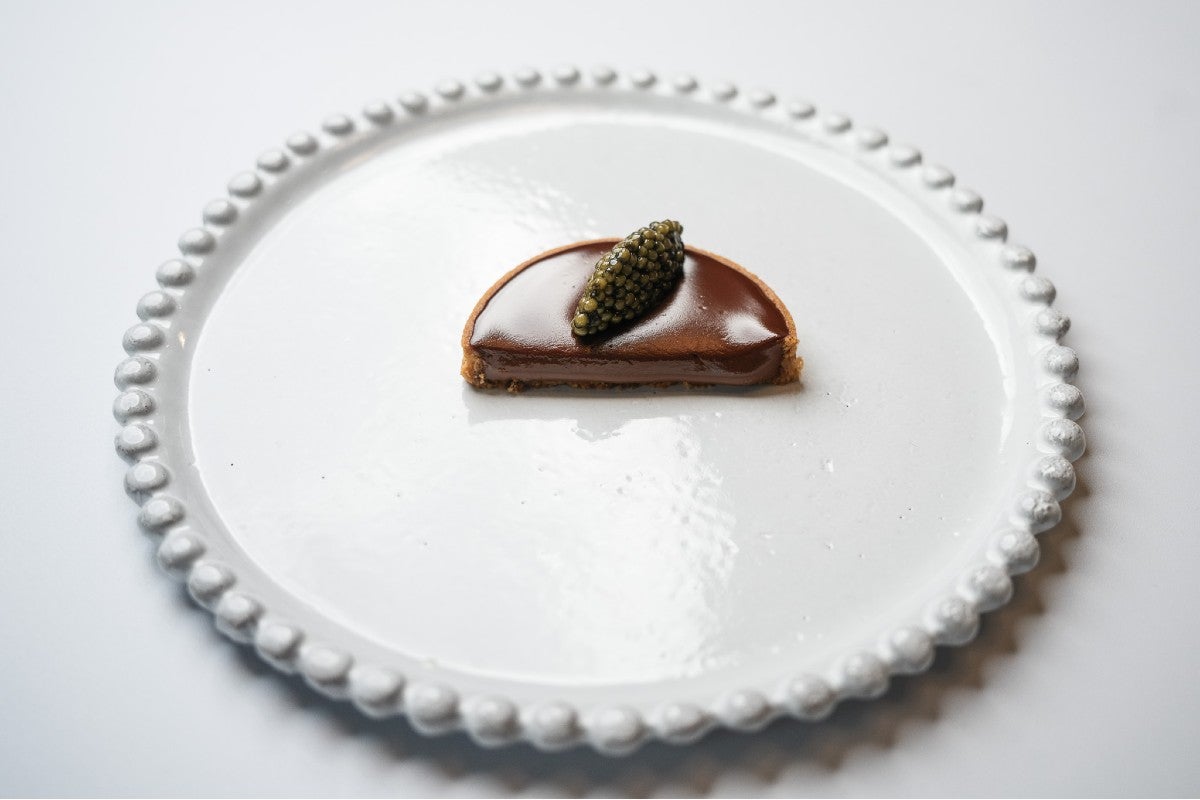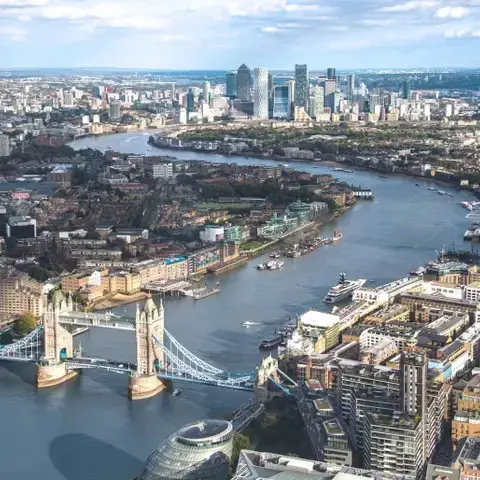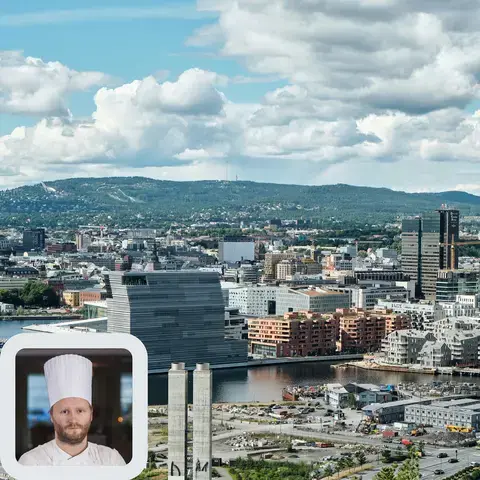Bruno Verjus is clearly not someone who plays it by the book. Now 64, he only opened his Paris restaurant, Table, 10 years ago. Cut to today and it has two Michelin stars and this year was the highest new entry on The World’s 50 Best Restaurants list, ranking 10th.
“I’m the oldest, youngest chef,” laughs Verjus, with evident delight. “Age isn’t important. What matters is your approach. Is that a game-changer? I am offering a different take on haute gastronomy,” he challenges. “I want to make people understand, through the way we nourish ourselves, how we can live in our ever-changing and challenging world. I want to literally feed the soul.”
I first met Verjus, then a highly regarded food blogger, back in 2010. We were both guests at Alain Ducasse’s 20th anniversary of Louis XV in Monte Carlo. His route to opening his own restaurant was unusual. He attended medical school in Lyon, lived in China for nearly two decades and started a medical device and packaging company which he sold in 2005. He began hosting a radio show ‘Don’t Talk with Your Mouth Full’ and in 2013, he opened Table with just 24 covers, arranged around a tin counter designed by Verjus himself.


